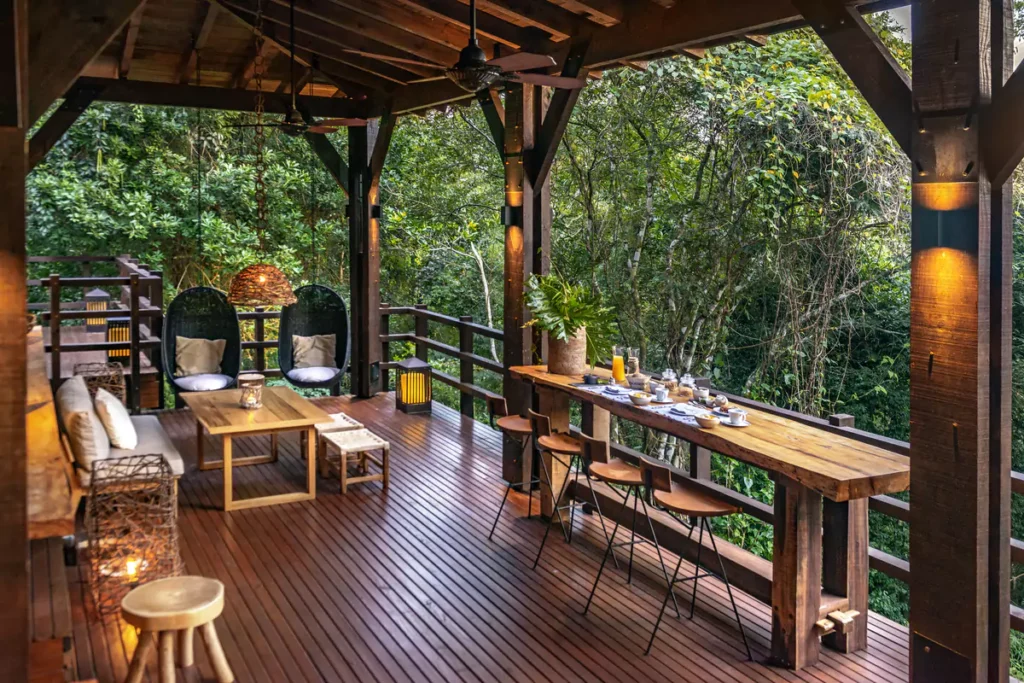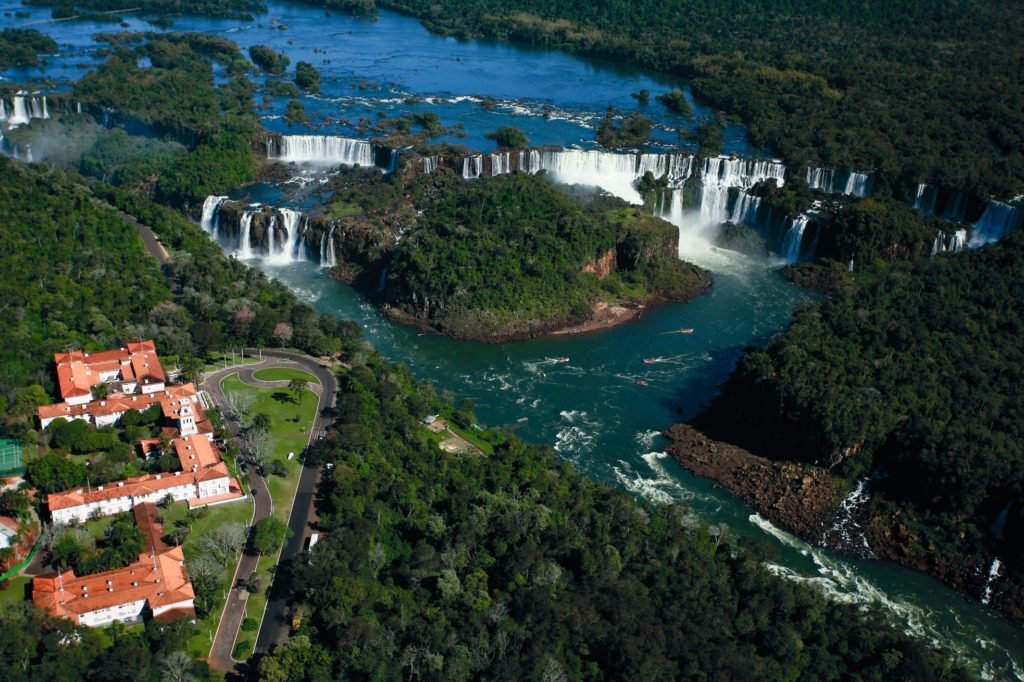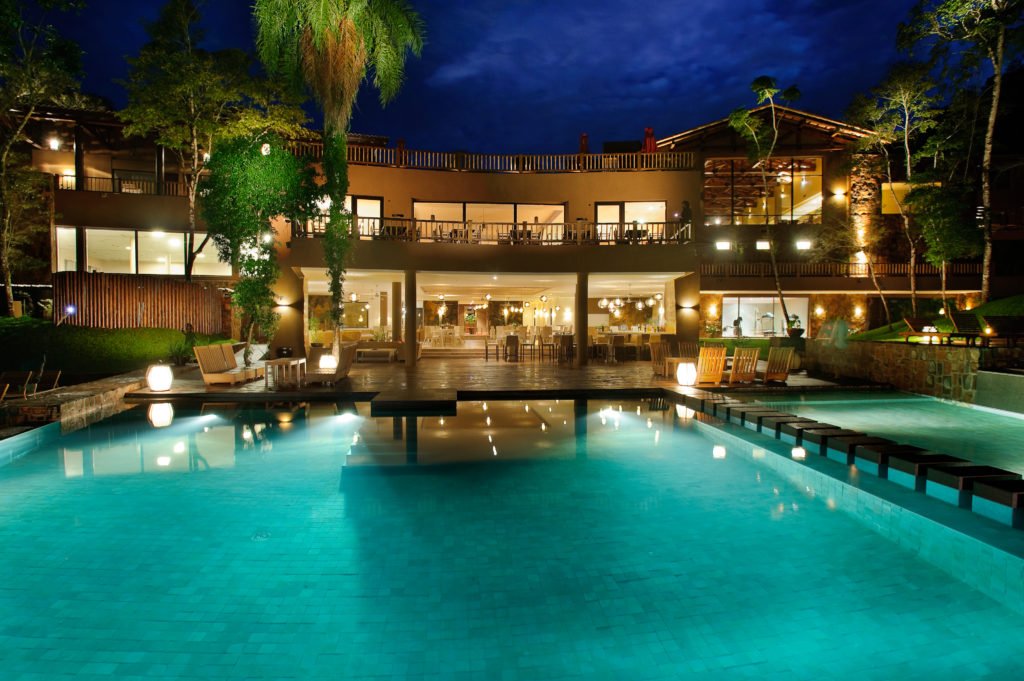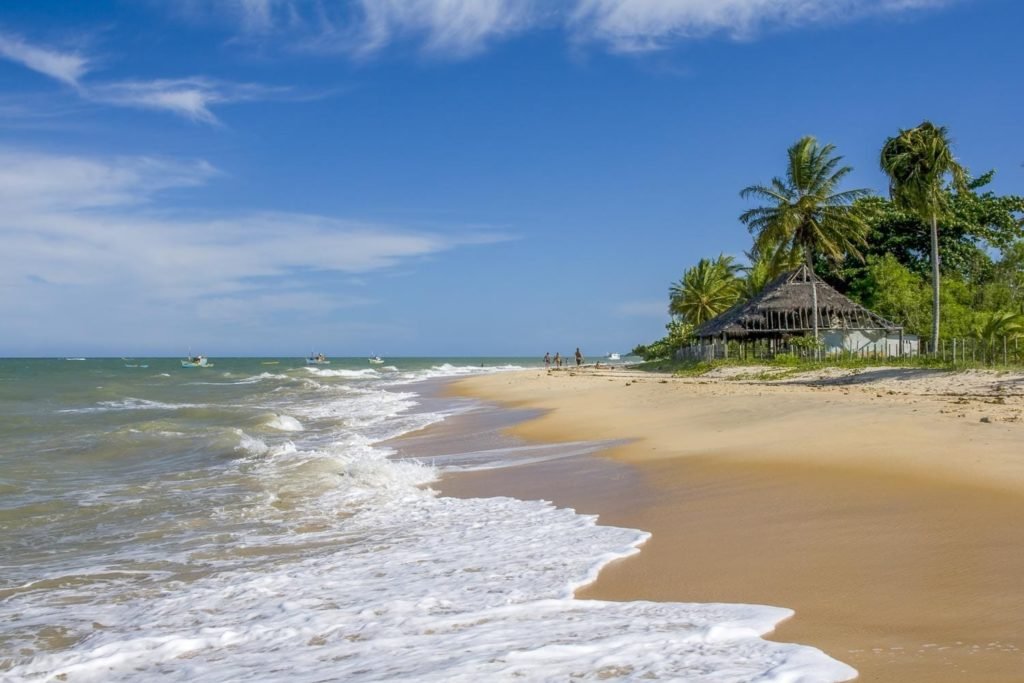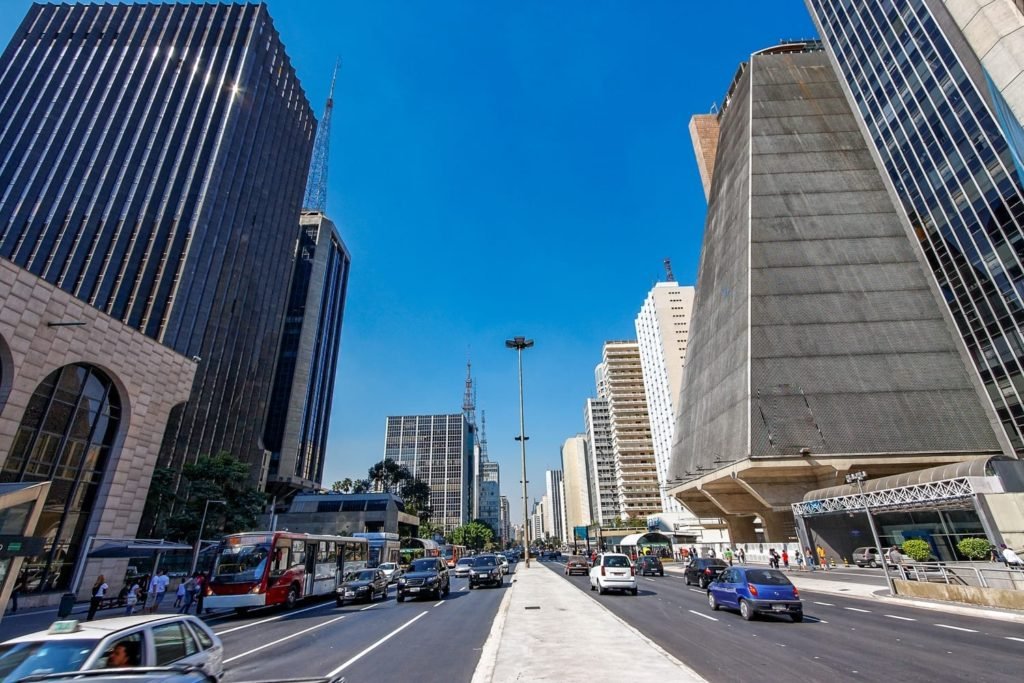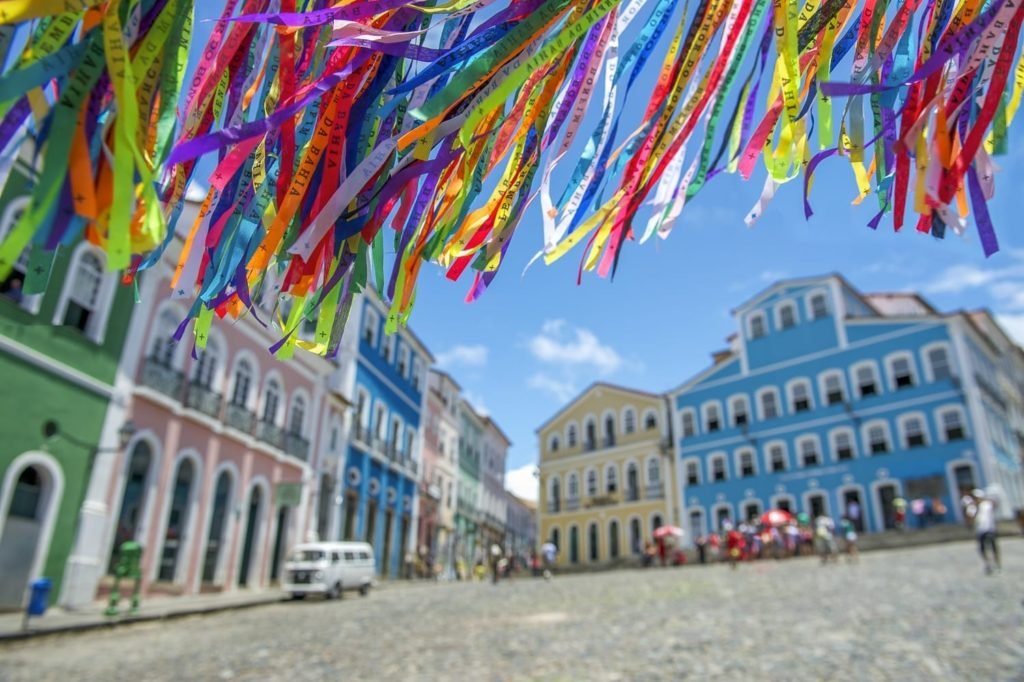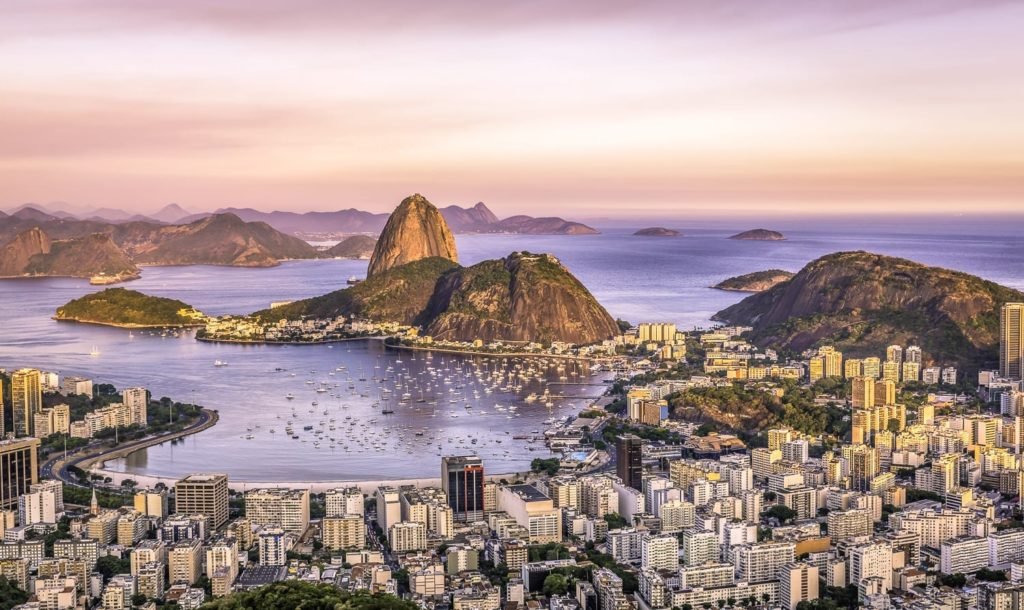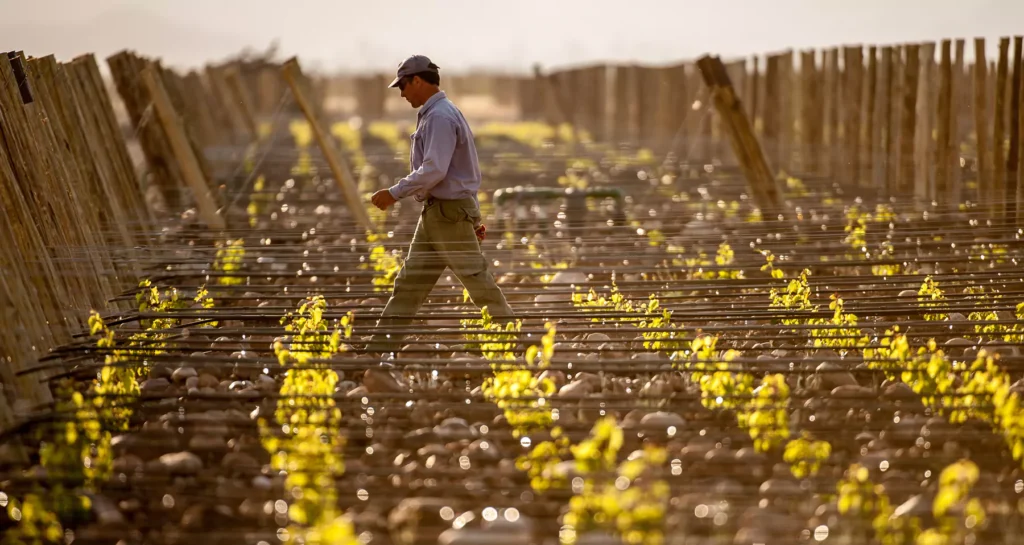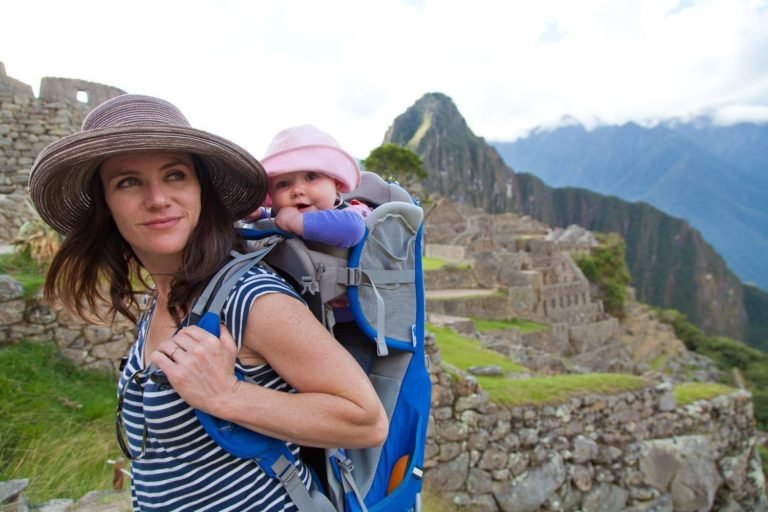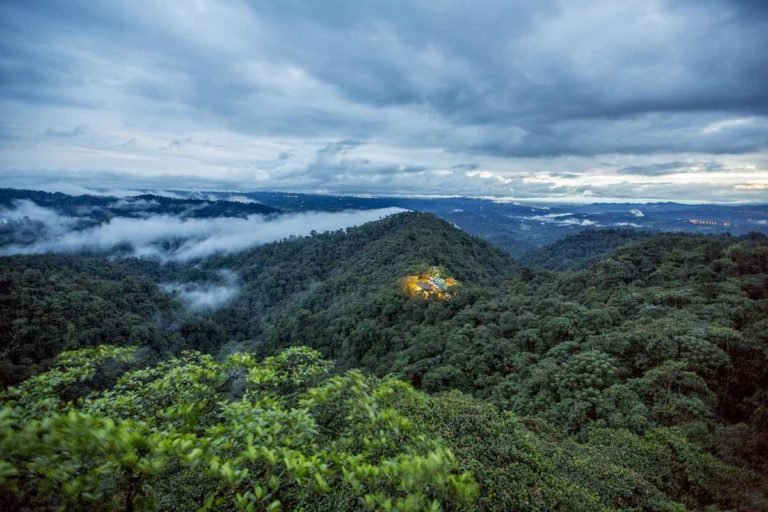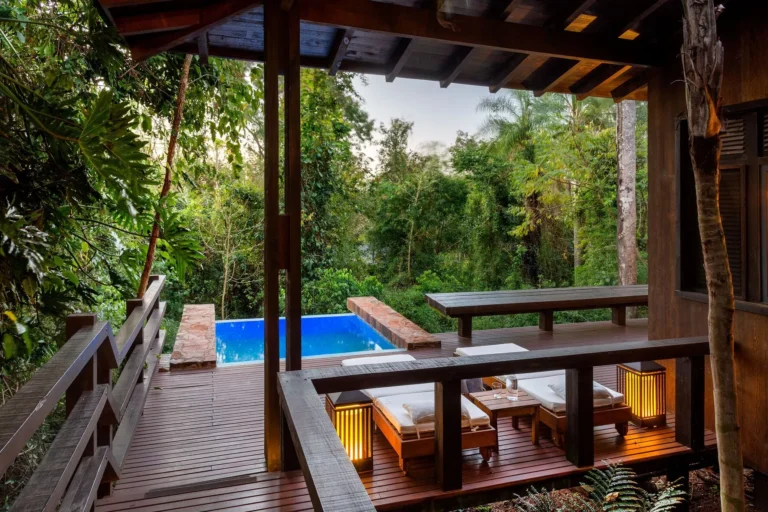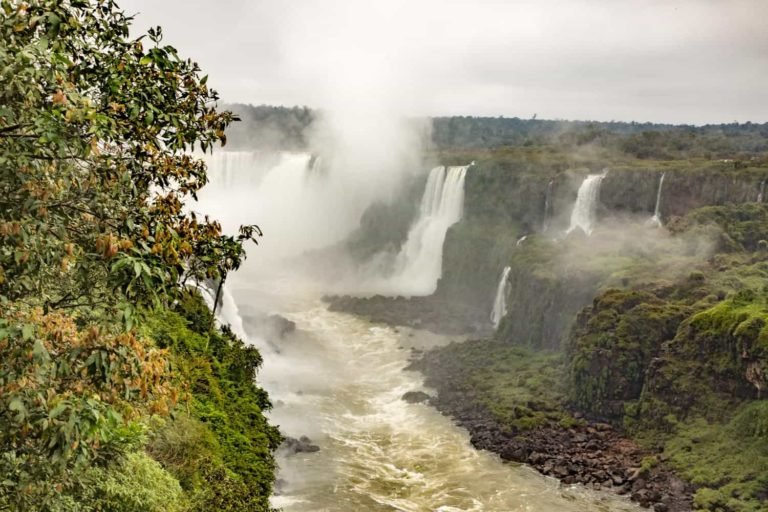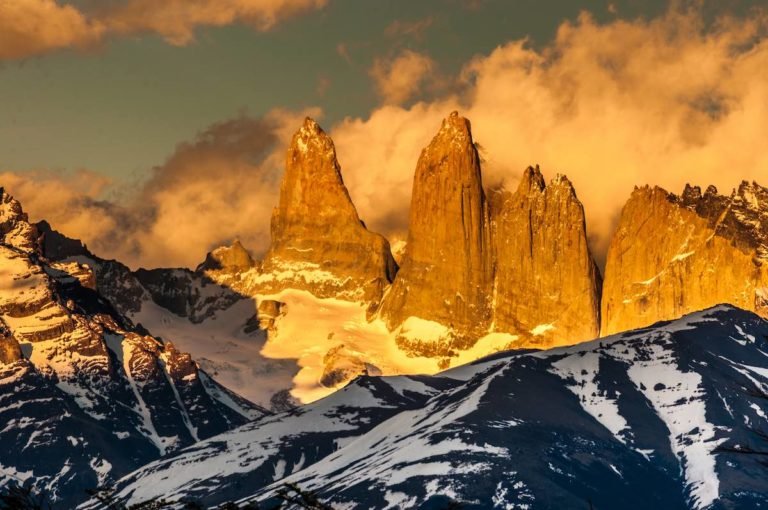Iguacu Falls
Brazil’s far southeast extends into a subtropical forest region—a vast river basin spilling over into Paraguay and Argentina. Iguacu National Park protects 656 square miles of this precious ecosystem, adjacent to other reserves and sanctuaries. Here, the Iguacu River serves as the natural border between Brazil and Argentina.
Argentina’s twin park, Iguazu National Park, was created in 1934. Each side offers contrasting views of the river’s main attraction— the breathtaking Iguacu Falls.
Iguacu is a Guaraní word, translating to “Big Water.” True to that name, these are the largest falls in the world in terms of volume. Iguacu features roughly 275 distinct cascades within its two-mile-wide, horseshoe-shaped curve (number of individual falls changes with the season and water flow).
The most spectacular section (best viewed from the Argentine side) is known as La Garganta del Diablo, or “The Devil’s Throat.” There, the Iguacu River crashes 240 feet to its lower course. Words fail to describe this sight—like watching a massive lake tumble continuously over a cliff. Photos and videos cannot adequately capture the magic; even while witnessing it in person, it’s difficult to process. The mist created by the plummeting deluge creates huge rainbows. Swifts soar through these clouds to their cliffside nests.
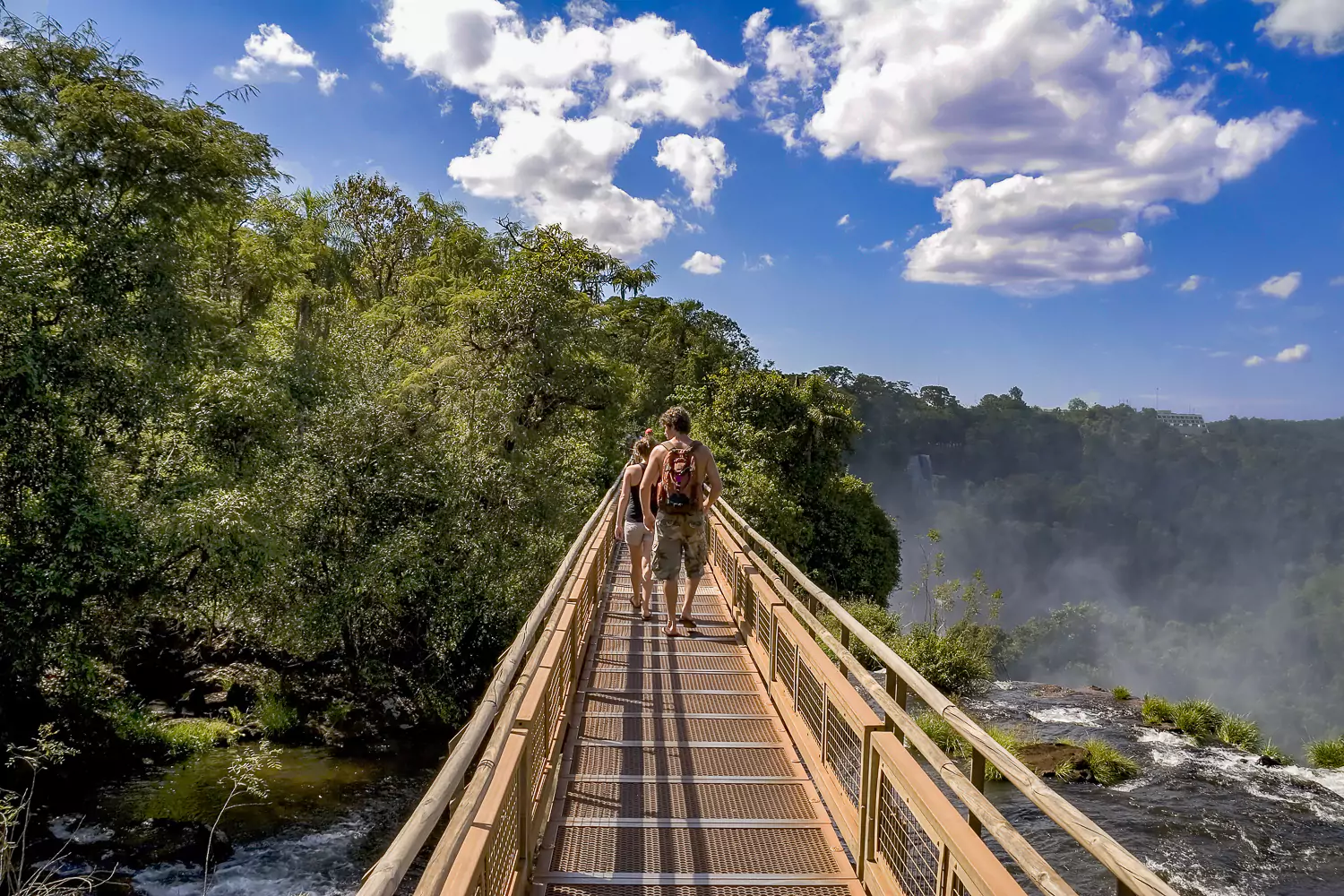
Iguacu National Park is home to over 430 bird and 70 mammalian species, many of which can be seen from the forest trails and walkways surrounding the falls.
What to do in Iguacu
A system of elevated walkways and trails allows visitors to view the falls from above and below.
The falls can also be experienced from the water; both the Argentine and Brazilian sides offer zodiac boat trips on the lower section of the Iguazu River. These speedboats cruise upriver, jumping rapids and maneuvering under the spray of some of the smaller falls. Helicopter flights over the falls can also be arranged from the Brazilian side.
Other activities around the area include:
- Visits to Aviary Parks
- Visit Local Guarani Tribes
- Visit the Archeological Jesuit Missions’ Ruins
- Kayak & Stand-up Paddleboard in nearby Rivers and Lakes
- Bike and Hike in Jungle Trails
- Explore Hidden Waterfalls and Creeks
- Discover Local Flora & Fauna
- Learn About Local Gastronomy
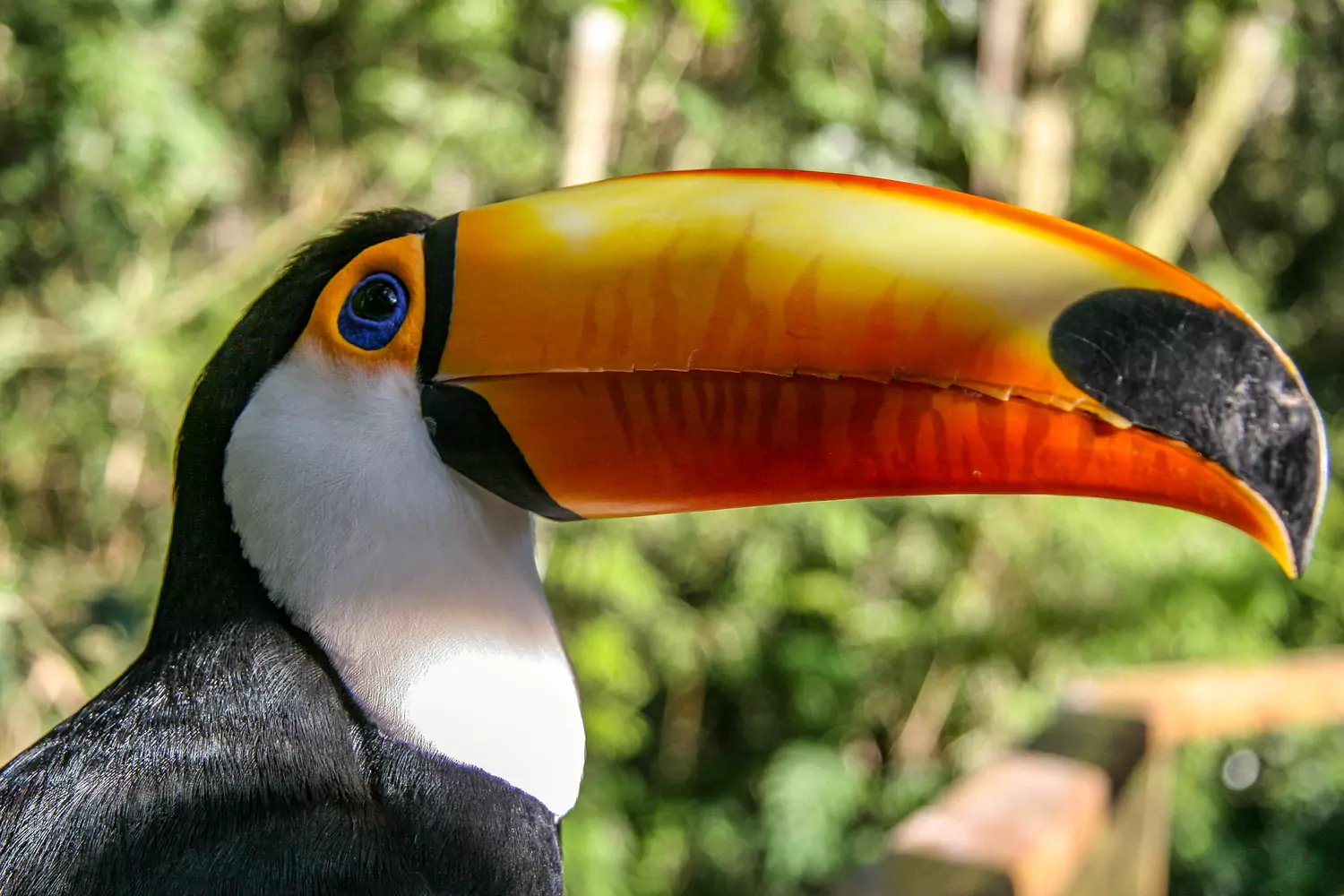
What is the Weather Like?
Iguacu Falls is a year-round destination. The climate in Argentina’s Northeast tends to be hot and humid. The hottest months in the Iguazú Falls are October through April. During the rest of the year – the climate slightly changes based on the hot breezes from the Amazon and cold winds from Patagonia. Winter months are a bit cooler, especially at night. January to March is Iguazu’s rainy season and the water flow of the waterfalls is significantly increased, visitors are rewarded with greater water volume—up to 450,000 cubic feet per second. Temperatures range from 65°F to 90°F in the Summer months and from 50°F to 75°F in the Winter months.
These averages are changing, please check extended weather forecasts using your favorite weather app prior to departure.
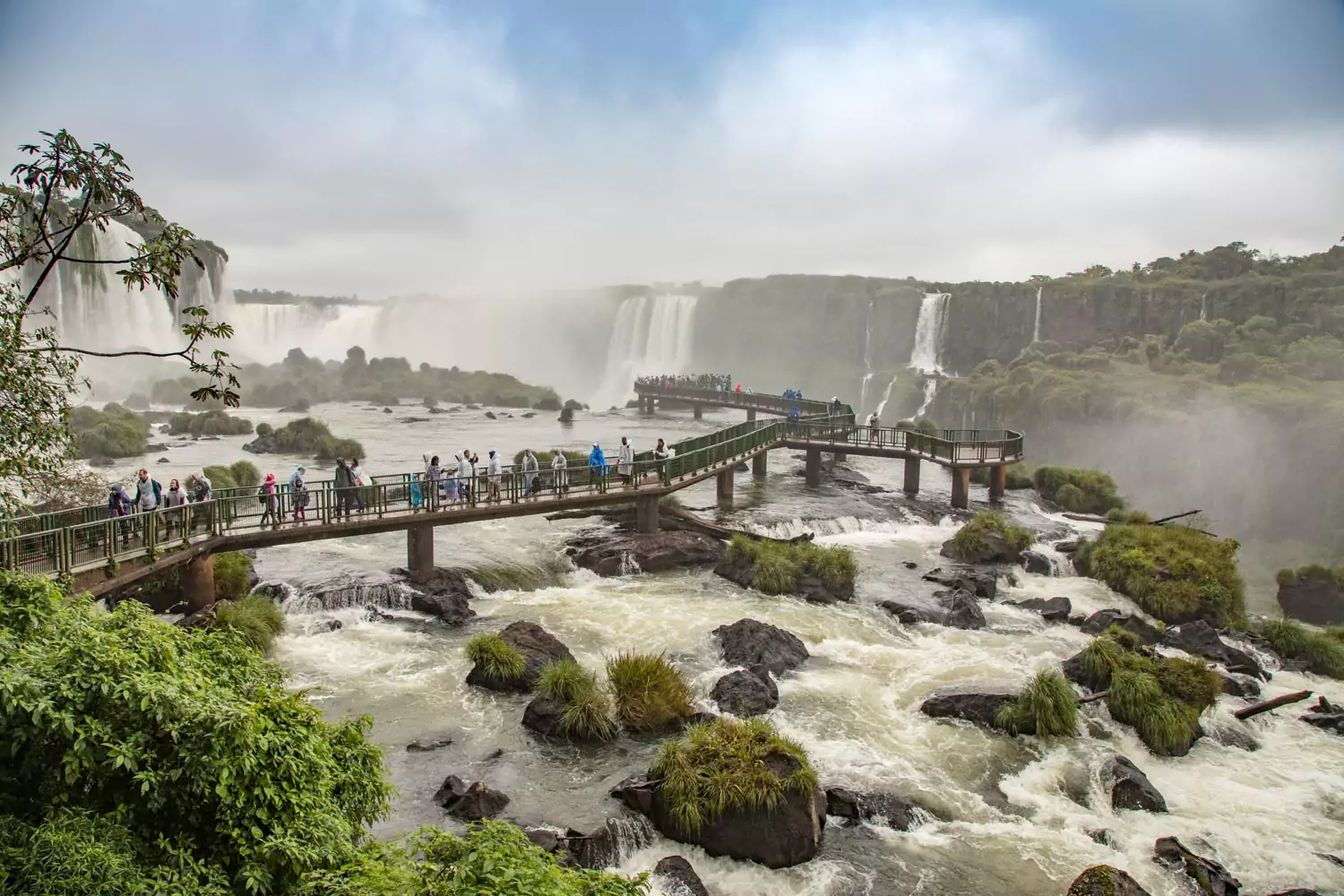
Getting There
Airports serve the Brazilian and Argentine sides of the border. Visits to this area can be combined easily with time in Rio de Janeiro or Buenos Aires.
By air, Puerto Iguazu (IGR) is one hour and 50 minutes from Buenos Aires and Cordoba. Foz de Iguacu is one hour and 50 minutes from Rio de Janeiro and Sao Paulo.
Start your journey today
LANDED delivers the finest in custom, private travel to Central America, South America, and Antarctica. These regions are our passion; we know them first-hand and by heart. Speak with one of our travel designers and let us create a tailored itinerary for you in Iguacu.
How to combine Iguacu
Have some extra time? Here are some options for you to combine with.

